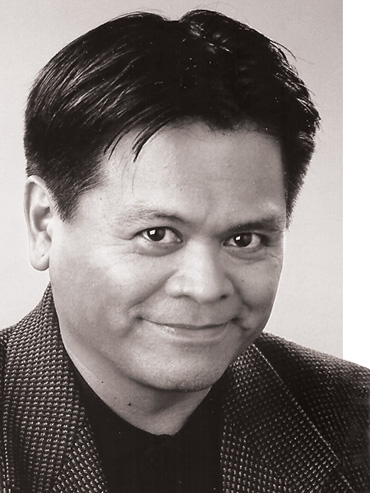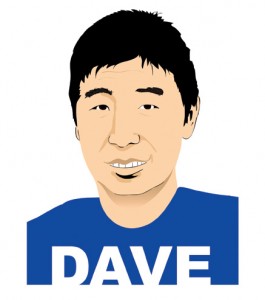By Emil Guillermo
Faisal Shahzad, the failed Times Square car bomber, represents a major turning point in the war on terror on American soil.
We were fortunate that the bomb didn’t go off, but the Asian American community—which includes South Asians, as well as Arab and Muslim people from western parts of the Asian continent—may not be so lucky.
In a post-Shahzad era, finding terrorists will no longer be as superficial as trailing the winner in an Osama bin Laden look-alike contest. Now, it’s a matter of sniffing into your foreign- sounding name, your immigration status, your non-Christian faith. It could mean looking into the soul of a person who may even look like you and me.
Here, in the land of the free, you may feel compelled to drape yourself in the Constitution—at least the parts that haven’t been put through the shredder. Good luck. The inept car bomber only renews justification for the hardest line possible against terrorism that began with Bush II and his far-reaching powers to wiretap and invade the privacy of anyone he pleased. For some, catching the terrorists by any means necessary had a nice beat to it.
But when “persons of interest” hail from the group known as “the model minority,” we may all be in trouble.
Model Minority Revisited
A convenient phrase that at once both damns and applauds, the term “model minority” puts us up on a pedestal so that other non-whites can learn from our example. The “good stereotype” enables government and social services to ignore our community as one with no particular needs. It renders us conveniently invisible.
We’re not so invisible now.
Shahzad changes it all. When he arrived from Pakistan in 1999, Shahzad was your typical go-getter. From an elite, respected family, he studied, became naturalized, and gained a foothold as an American success story. One by one, he amassed it all. Pakistani American wife and child, home in the suburbs, a black Mercedes, a plush job as a financial analyst. And then one by one, he lost it all. His home was foreclosed; his wife and child went back to Pakistan. Shahzad was out of work, living as an ascetic. He had become radicalized.
If he were white, he would be a Tea Party member, an acceptable devotee of Sarah Palin and Glenn Beck.
Instead, Shahzad had turned to Islamic fundamentalism to ease his soul. His American middle-class values failed him.
Does Shahzad, the suburban weekend warrior who slowly simmers until radical, even show up on anyone’s radar? If he didn’t then, you can bet he will now. The settings for scrutiny will be lowered, especially since Shahzad comes on the heels of another terroristic outburst—the mass killings in Fort Hood last year. The alleged gunman, Major Nidal Hasan, was an American-born Muslim of Palestinian descent. The FBI had hints about Hasan’s radical turn as early as 2005, but none of it was taken seriously. He was a major in the Army, after all.
Kagan v. Koh
The story of Shahzad, the radical suburbanite angered by drone attacks on his ancestral home in Pakistan, makes the nomination of the next Supreme Court justice more important than ever.
If this country is to escape more aggressive profiling that a high court with a rightward tilt would certainly allow, we will need a justice a lot more amenable to civil liberties and minority rights—someone other than Elena Kagan.
The choice of nominee is a president’s prerogative. But Kagan could help extend the war on terror domestically, even to the point of suspending or delaying the reading of Miranda rights. Further, when other legal luminaries decried the Bush administration’s erosion of civil liberties to fight terror, Kagan kept surprisingly mum.
Obama could have turned to Harold Koh. Talk about “model minority.” The 15th Yale Law School dean is a vetted and approved Obama appointee who now serves as legal adviser to the State Department. His parents grew up in Korea under Japanese rule, and ultimately, they were granted asylum and came to America.
With his human rights and minority advocacy background, Koh would have been a comforting pick and the first Asian American Supreme Court judge.
He’d also be popular with hard-line conservatives. In March, Koh vigorously defended Obama’s plan to use aerial drone strikes in Pakistan, arguing that the actions comply fully with American and international laws of war.
Ironically, those are the same drone attacks that radicalized the American suburbanite Faisal Shahzad.
______
 Emil Guillermo is an award-winning journalist, former host of NPR’s “All Things Considered,” and author of Amok: Essays From An Asian American Perspective. After 14 years at AsianWeek, he was considered the most widely read columnist on Asian American issues in the United States. Follow him at www.amok.com and www.twitter.com/emilamok.
Emil Guillermo is an award-winning journalist, former host of NPR’s “All Things Considered,” and author of Amok: Essays From An Asian American Perspective. After 14 years at AsianWeek, he was considered the most widely read columnist on Asian American issues in the United States. Follow him at www.amok.com and www.twitter.com/emilamok.









